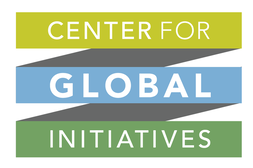Timing
The best time to start thinking about pursuing a global opportunity is RIGHT NOW! The earlier, the better. But, if you are a Senior hoping to squeeze in a global opportunity before you graduate or a transfer student who’s not sure how a global opportunity fits into such a tight schedule, options like short-term trips, internships with locally-based international organizations, or even post-graduation jobs and internships could be perfect for you!
Talk to someone! And let those conversations inspire you! Here are some resources:
- Attend a Global Project Showcase or a Study Abroad 101 Information Session.
- Schedule a meeting with someone from the Center for Global Initiatives or the Study Abroad Office.
- Read the Global Guide, visit the Study Abroad website, browse through Experience Explorer and Study Abroad Peer Ambassador
It is still possible for you to travel internationally! Attend a Study Abroad 101 Session or meet with someone from CGI to find out more information about programs that will fit your time frame–summer programs may be especially attractive (see the Carolina Center for Public Service for alternative break opportunities, many of which connect you with international communities). You may also want to consider post-graduation opportunities, like Peace Corps or Fulbright.
You may be under the assumption that you do not have time to participate in a global opportunity. That isn’t necessarily true! There are major-specific study abroad programs that allow you to take major courses, such as Chemistry in Sevilla and Journalism in China. You may also be able to take advantage of short-term opportunities during your time at Carolina—opportunities like international film festivals or volunteering with a local refugee organization. Keep in mind that post-graduation opportunities, like Fulbright and Peace Corps, might be a good fit as well.
Although for-credit global opportunities tend to be scheduled based on an academic calendar, it is possible to plan your global experience differently. If you are volunteering for an international non-profit organization, you can organize it so that you spend 30 days or perhaps 6 weeks with the organization. Since you are operating independently, it’s totally up to you!
Consider which time of year is best for you to travel. You may very well want to study abroad in New Zealand from June to August, but did you know that those are the winter months? Along with considering the weather of your destination, you should think about holidays, campus responsibilities, and course or internship availability (maybe that ECON course is only offered in the spring semester). Talking with Study Abroad Peer Advisors or CGI Awardees who have traveled to your country is a good place to find out more info.
